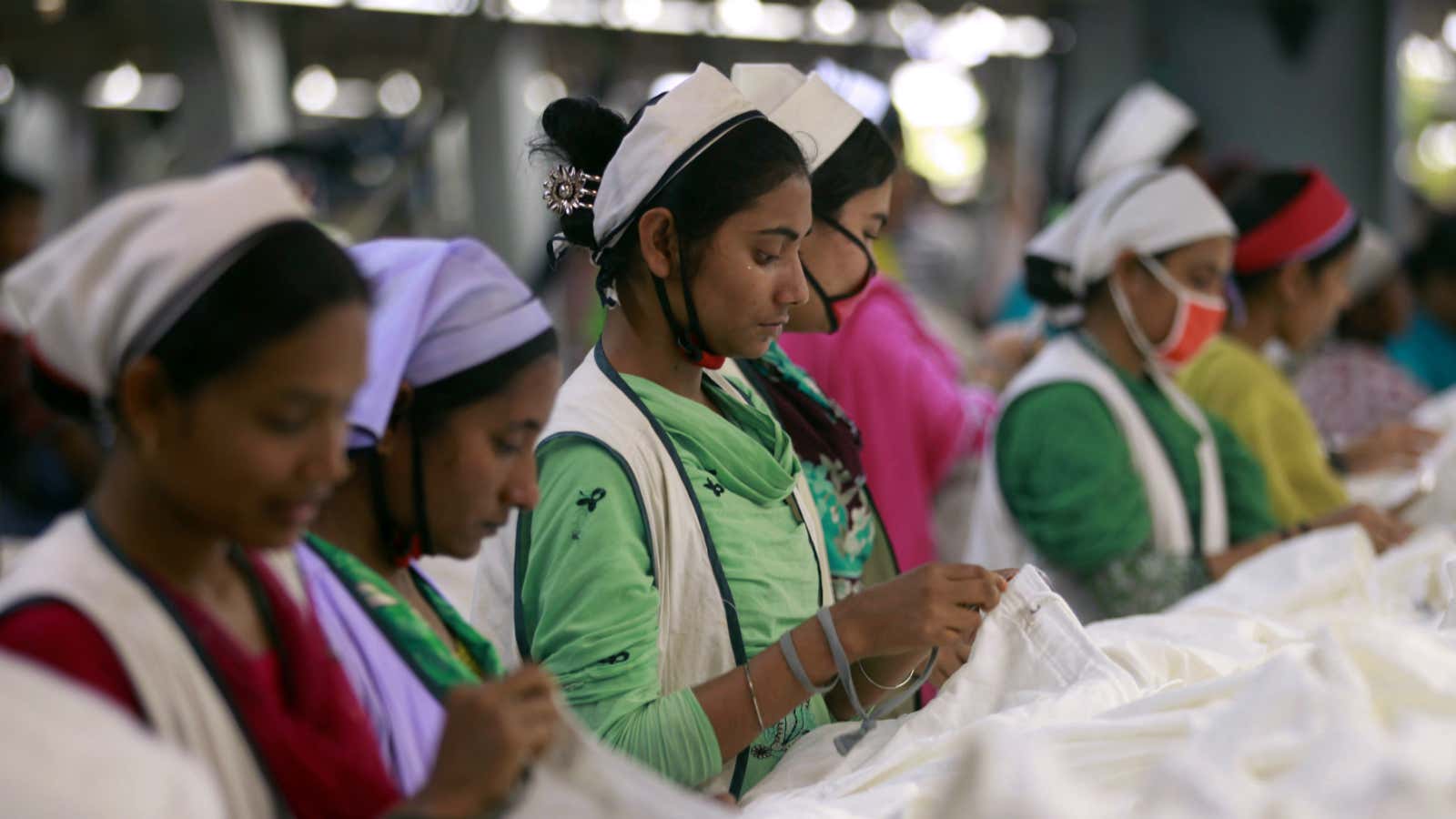The terrorist attack at a cafe in Dhaka on July 1 that targeted foreign nationals has rattled global fashion brands, which import garments from Bangladesh.
The country is the second-largest exporter of garments in the world, supplying to major global brands including Gap, Uniqlo, Marks & Spencer, Walmart, Zara and H&M. The $26-billion garment industry forms 80% of the country’s exports and the industry employs some four million people.
Uniqlo, the Japanese clothing brand has said that it’ll stop all travel to the South Asian nation following the attack. Seven Japanese citizens were killed in the attack. Fast Retailing Co, which owns Uniqlo, has also told its staff in Bangladesh to stay at home.
“An incident like this will definitely impact us, in as much as our importers from places such as (the) US and China will be wary to visit because of the security concerns,” Shahidul Haque Mukul, managing director of Ananta Garments, a ready-made garments exporter based in Dhaka, told Reuters.
The country has been witnessing gruesome attacks on its liberals, intellectuals, journalists and activists led by the Islamic State and Al Qaeda over the past two years.
“The hostage crisis in Dhaka is a terrible tragedy reflecting how security has deteriorated in the country,” Sarah Labowitz, co-director at the NYU Stern Center for Business and Human Rights in New York told AFP.
The violence presents “a serious threat to the economy,” Labowitz said. “This kind of attack will surely keep (fashion) buyers away in the months leading up to the holiday shopping season.”
“It is a strong slap to our image. It will put pressure on our business, but we cannot say to what extent at the moment,” Mohammad Siddiqur Rahman, president of the Bangladesh Garment Manufacturers and Exporters Association, told Reuters.
The attacks come three years after a large factory collapsed in Dhaka in 2013, killing over 1000 garment workers. Retailers have since then remained cautious of the working conditions in the country.
